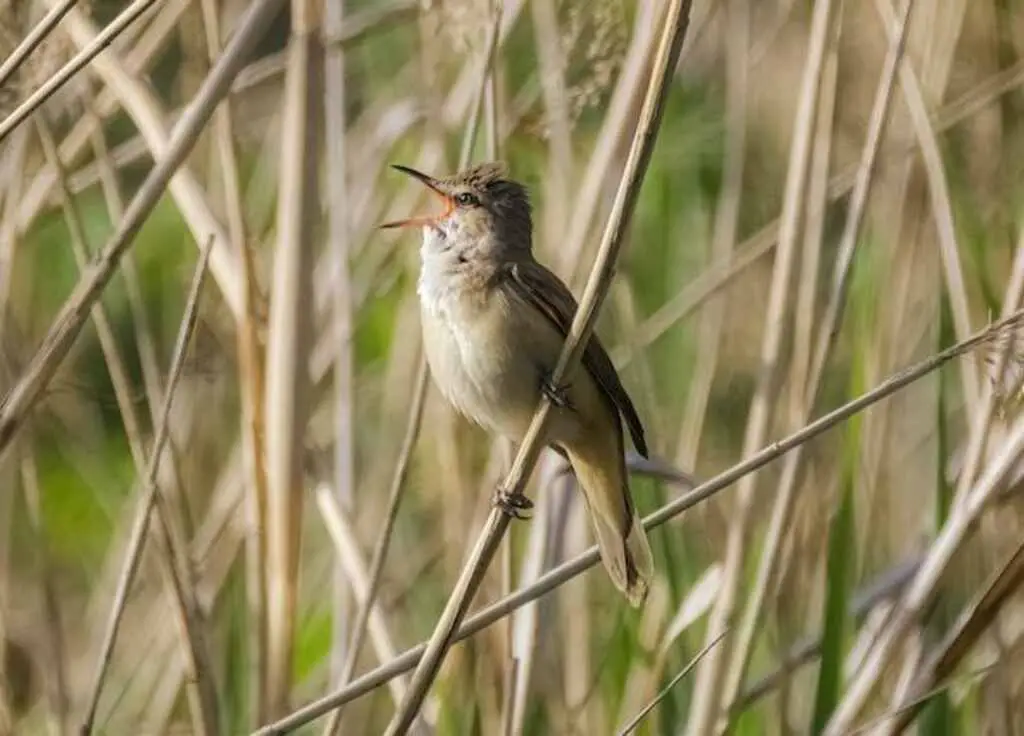Have you ever been awakened in the middle of the night by the sweet sounds of birds chirping? You might be wondering what it means when birds sing at night. In this section, we will explore the meaning behind birds chirping at night.
We will delve into the reasons why birds exhibit this behavior, providing insights into their natural instincts and environmental factors.
Contrary to popular belief, not all bird species are active during the daytime. Some birds are known for their nocturnal behavior, making their presence known through their vocalizations at night.
But why do birds chirp at night? Let’s find out.
Table of Contents
- 1 Key Takeaways:
- 2 What Does Birds Chirping At Night Mean?
- 3 Understanding Nocturnal Bird Behavior
- 4 Environmental Factors that Influence Nocturnal Bird Chirping
- 5 Symbolic and Spiritual Meanings of Birds Chirping at Night
- 6 Types of Birds Known for Chirping at Night
- 7 Scientific Explanations for Birds Chirping at Night
- 8 Benefits and Challenges of Birds Chirping at Night
- 9 Conservation and Protection of Nocturnal Bird Species
- 10 Conclusion
- 11 FAQs: What Does Birds Chirping At Night Mean?
- 11.1 What does birds chirping at night mean?
- 11.2 Why do birds chirp at night?
- 11.3 How do environmental factors influence birds chirping at night?
- 11.4 What are the symbolic and spiritual meanings of birds chirping at night?
- 11.5 Which bird species are known for chirping at night?
- 11.6 What are the scientific explanations for birds chirping at night?
- 11.7 What are the benefits and challenges of birds chirping at night?
- 11.8 How can we conserve and protect nocturnal bird species?
- 12 Author
Key Takeaways:
- Birds chirping at night is a common phenomenon, with several different reasons driving this behavior.
- Nocturnal bird behavior is influenced by various factors, such as mating calls, territory defense, and adaptation to low-light conditions.
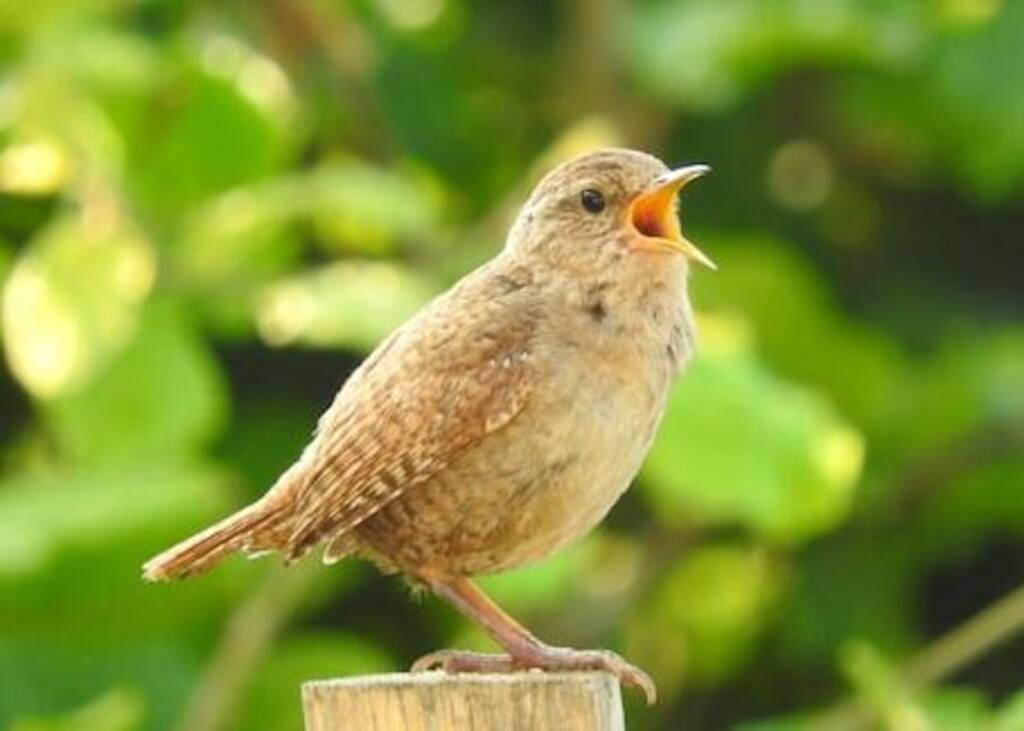
What Does Birds Chirping At Night Mean?
Birds chirping at night can be influenced by factors such as artificial light disrupting their natural rhythms. Urbanization may push them to adapt their vocalizations. Mating calls might also play a role, but nighttime chirping is generally less frequent due to reduced visibility.
Understanding Nocturnal Bird Behavior
Have you ever been awakened by birds chirping at night and wondered why they were making noise when they should be sleeping?
Many bird species are active during the nighttime hours, exhibiting a variety of behaviors and vocalizations that are unique to this time of day.
To understand why birds sing at night, we must first examine their natural instincts and biological adaptations.
Mating Calls
Some bird species use nighttime hours for mating calls, seeking out potential mates with their vocalizations. This is because the nighttime environment is often quieter, making it easier for birds to hear each other’s calls. The darkness also allows for greater sound transmission, making it easier for birds to locate each other.
Territory Defense
Nocturnal bird behavior also includes defending their territory. Some birds may use vocalizations as a way to mark their territory and warn off other birds that may invade their space. This behavior is particularly common during breeding season when males may use vocalizations to attract females.
Adaptation to Low-Light Conditions
Another reason why birds chirp at night is related to their adaptation to low-light conditions. Some birds have evolved to be most active during the nighttime hours, allowing them to avoid predators and take advantage of available resources.
These birds have developed visual and auditory adaptations that enable them to see and hear in low-light conditions, making nighttime activity essential for their survival.
Environmental Factors that Influence Nocturnal Bird Chirping
The environment plays a crucial role in the behavior of nocturnal birds. As cities and towns continue to expand, artificial light sources and human-made habitats can impact nocturnal birds’ vocalization patterns. Here are some key environmental factors that can influence birds chirping at night:
| Environmental Factor | Description |
|---|---|
| Artificial Light | Light pollution from streetlights, buildings, and cities can disrupt the natural circadian rhythms of birds and lead to increased nighttime activity. This can affect their mating calls, territorial songs, and other vocalizations. |
| Urbanization | As more natural habitats are replaced with urban areas, birds may seek refuge in parks, gardens, and other green spaces. These areas often have different lighting and noise conditions than rural environments, leading to altered vocalization patterns. |
| Climate Change | Changes in temperature and precipitation patterns can affect the timing of natural events, such as migration and breeding cycles. This can impact the vocalization patterns of nocturnal birds and alter their behavior in ways that are not yet fully understood. |
Research has shown that some bird species are more resilient than others to the impacts of urbanization and light pollution. For example, nocturnal bird species such as the Eastern Whip-poor-will and Common Nighthawk have been found to adapt well to artificial light sources and continue to vocalize at night.
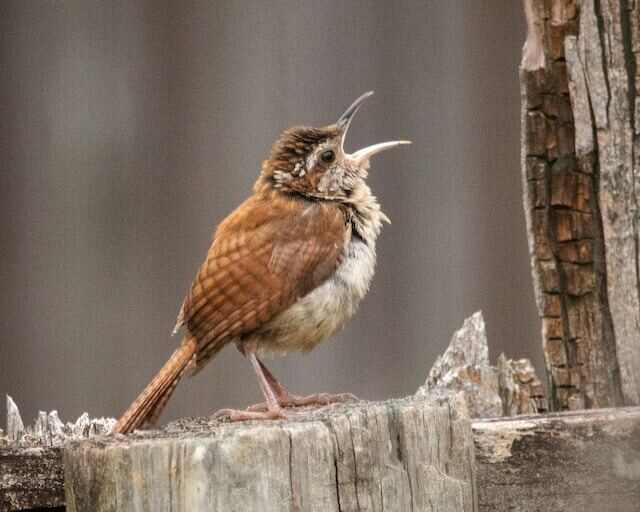
Symbolic and Spiritual Meanings of Birds Chirping at Night
Throughout history, birds chirping at night have been attributed to various symbolic and spiritual meanings across different cultures and spiritual practices. Here are some of the most commonly associated meanings:
- Communication from the divine: In some cultures, the sounds of nocturnal birds are believed to be messages from the spiritual realm. The birds are seen as messengers or intermediaries between the physical world and the spiritual world, conveying important messages or warnings.
- Good luck and prosperity: In other cultures, nocturnal birds are associated with good luck and prosperity. Their chirping at night is seen as a sign of abundance and blessings to come. Some believe that hearing a certain bird’s call at night can even bring good fortune.
- Warding off evil spirits: In some spiritual and cultural practices, nocturnal bird sounds are believed to have protective qualities. The birds are seen as guardians that can keep away negative forces and energies.
- Death and the afterlife: In some cultures, bird sounds at night are associated with death and the afterlife. The birds are thought to be messengers that guide the souls of the departed to their final resting place or to another realm.
- Renewal and rebirth: Some spiritual beliefs see nocturnal bird sounds as a symbol of renewal and rebirth. The birds’ songs at night are seen as a sign that new beginnings and fresh starts are on the horizon.
“Birds are a symbol of the divine, a sign of freedom, joy, and hope. Their presence and sounds are reminders of the magic and mystery of life, and the importance of connecting with the natural world.” – Anonymous
Types of Birds Known for Chirping at Night
While birds chirping at night is a common phenomenon, some bird species are more vocal than others during nighttime hours. Here are a few types of birds known for their frequent and distinctive chirping at night:
| Common Nighthawk | The common nighthawk is a nocturnal bird that is known for its distinctive “peent” calls, made by males during courtship flights. These calls can often be heard in open areas such as fields and meadows at dusk and dawn. |
|---|---|
| Eastern Whip-poor-will | The eastern whip-poor-will is another nocturnal bird that is known for its distinctive song, which sounds like its name. Males will often sing during the breeding season from a prominent perch, such as a tree branch or fencepost. |
| Barn Owl | The barn owl is a common nocturnal bird that is known for its screeching calls, which can be particularly loud and piercing at night. These calls are often used for territorial defense and to communicate with other owls. |
| Chuck-will’s-widow | This nocturnal bird is known for its distinctive “chuck-will’s-widow” call, which is primarily heard during the breeding season. Its calls are often loud and repetitive, and can carry for long distances through the night. |
Other bird species that are known for their vocalizations at night include the barred owl, whippoorwill, and common poorwill. These species have unique and fascinating behaviors that make them a joy to observe and listen to under the stars.
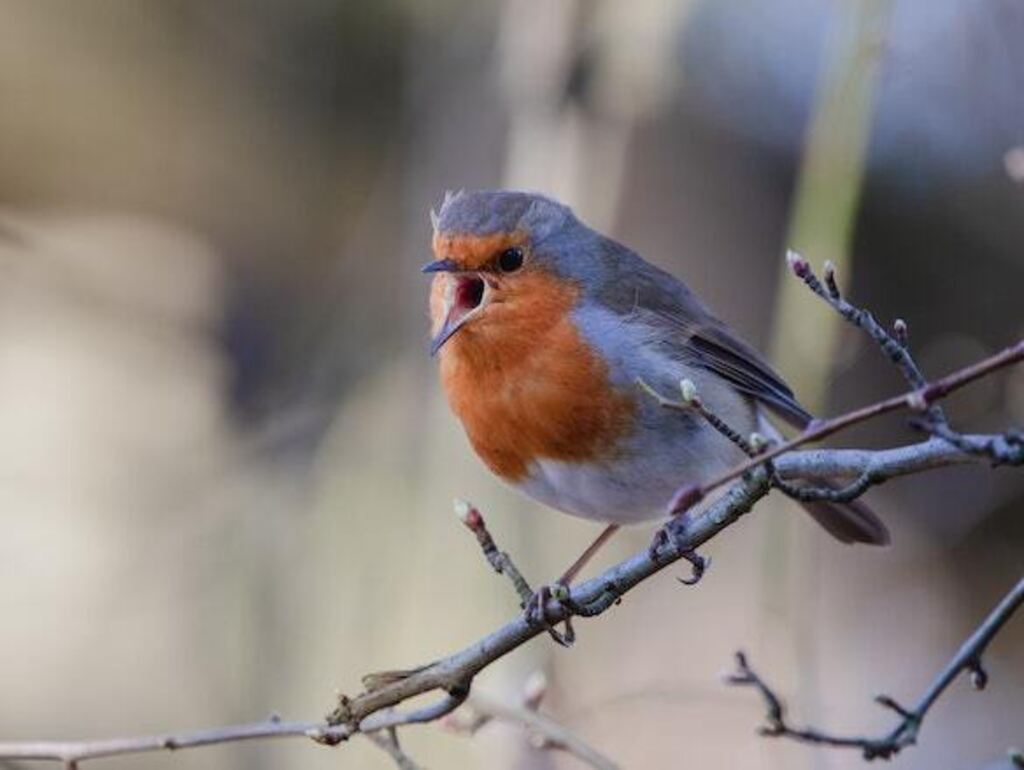
Scientific Explanations for Birds Chirping at Night
While various cultural beliefs and spiritual interpretations attempt to explain birds’ nocturnal chirping, scientific research offers concrete explanations for this phenomenon. Hormonal influences, sleep patterns, and environmental cues are some of the factors scientists believe play a significant role in birds’ nighttime vocalizations.
Light and Hormonal Influences
Light is a crucial environmental cue that affects the physiological processes in birds. The hypothalamus, a part of the brain that regulates most physiological functions, including those that control sleep and hormones, responds to light.
When exposed to light at night, birds’ hormones, particularly melatonin, are disrupted, causing them to sing. Disruption to their hormone patterns can lead to singing at inappropriate times or inadequate rest, which can harm their overall health.
Social and Environmental Cues
Birds often use vocalizations to communicate with one another, and social cues such as a nearby predator or other birds singing may provoke a response. Additionally, environmental cues, such as temperature and humidity changes, can influence birds’ behavior. For example, during warmer nights, birds may be more active and vocal than on colder nights.
Adaptation to Urbanization
Urbanization has had a profound effect on many bird species. As birds adapt to the presence of human-made structures and light pollution, their behavior can change. Some bird species have adapted to city life by becoming more active at night when it is quieter and safer to forage for food.
This phenomenon is known as the “urban dawn chorus,” where birds sing during the first hours of the morning before human activity increases.
In summary, birds’ nighttime chirping may seem mysterious, but scientific research provides logical explanations for this behavior.
The interplay between hormonal influences, social cues, and environmental factors can all contribute to birds’ nocturnal vocalizations.
Benefits and Challenges of Birds Chirping at Night
Birds chirping at night can provide various benefits to the ecosystem. One advantage is insect control. Nocturnal birds such as owls and nighthawks feed on insects that are active at night, reducing the population of pests.
Additionally, some bird species help to disperse seeds and pollinate flowers during their nighttime foraging activities, contributing to the preservation of plant biodiversity.
However, the vocalizations of nocturnal birds can also pose challenges to human life. The sounds produced by birds can disrupt sleep patterns, causing insomnia and related health problems.
Moreover, bird vocalizations, together with other sources of noise, can raise the overall noise levels in urban areas, contributing to noise pollution.
In some instances, the callings of migratory birds may also result in collisions with structures like buildings and wind turbines, causing injury or death to birds.

Conservation and Protection of Nocturnal Bird Species
Nocturnal bird species face various threats that put their survival at risk. Habitat loss, pollution, and climate change are some of the primary factors that contribute to the decline of these birds. As responsible stewards of the planet, we must take action to protect these fascinating creatures and ensure their continued existence.
Conservation efforts for nocturnal birds involve a combination of habitat preservation and restoration, species monitoring, and public education. Wildlife reserves, parks, and protected areas play a critical role in providing safe havens for these birds, allowing them to thrive in their natural habitats.
Monitoring programs are also essential in tracking population trends and identifying potential threats. Citizen science initiatives, such as the Audubon Society’s Christmas Bird Count, provide opportunities for individuals to contribute to scientific data collection and conservation efforts.
Public education is also crucial in raising awareness about the importance of nocturnal birds to the ecosystem and the threats they face. Outreach programs aimed at schools, communities, and local governments can help promote responsible behavior towards these birds and their habitats.
Finally, regulatory measures and policy initiatives can play a critical role in protecting nocturnal bird species. Laws and regulations that limit habitat destruction, regulate hunting practices, and promote sustainable land use can help preserve these birds’ habitats and ensure their survival.
By implementing a combination of conservation measures, we can help protect and preserve the beautiful nocturnal birds that grace our skies with their enchanting melodies.
Conclusion
The beauty of birds chirping at night is a fascinating phenomenon that encompasses various biological, environmental, cultural, and spiritual aspects. Through our exploration of this behavior, we have gained insight into the reasons behind it.
Nocturnal birds exhibit this behavior for various reasons like mating calls and territorial defense. Environmental factors like streetlights and urbanization can also contribute to this behavior. Additionally, this behavior has symbolic and spiritual meanings in diverse cultures worldwide.
Scientific theories suggest hormonal influences, sleep patterns, and environmental cues as underlying factors for this behavior. Birds chirping at night can have both positive and negative effects, such as insect control and disturbance to human sleep patterns.
It’s essential to conserve and protect nocturnal bird species’ habitats and efforts to ensure their survival for future generations. By understanding this behavior and appreciating nature’s symphony, we can work towards ensuring the well-being of these fascinating creatures.
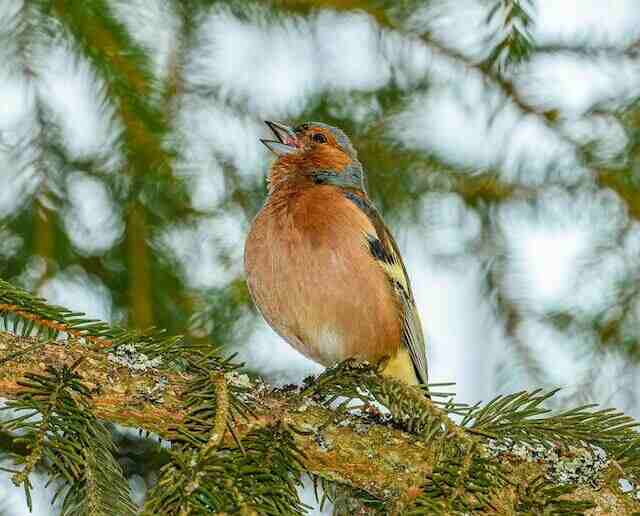
FAQs: What Does Birds Chirping At Night Mean?
What does birds chirping at night mean?
Birds chirping at night can have multiple meanings. It can be a natural instinct for birds to communicate with each other, establish territory, or attract mates. Additionally, environmental factors and artificial lighting can influence birds to chirp at night.
Why do birds chirp at night?
Birds chirp at night primarily for communication purposes. Some bird species are naturally more active during nighttime hours, using vocalizations to establish their presence and defend their territory. Mating calls are also common during this time as birds seek to attract mates.
How do environmental factors influence birds chirping at night?
Environmental factors such as streetlights, artificial habitats, and urbanization can impact bird behavior. These factors can disrupt natural light patterns and confuse birds’ internal clocks, leading to increased nighttime vocalizations. Additionally, urban environments may provide more food sources, making it more attractive for birds to be active at night.
What are the symbolic and spiritual meanings of birds chirping at night?
The symbolic and spiritual meanings associated with birds chirping at night vary across cultures. In some beliefs and folklore, nocturnal bird sounds are considered omens or messages from the spiritual realm. Some interpret it as a sign of guidance, protection, or even a message from loved ones who have passed away.
Which bird species are known for chirping at night?
Several bird species are known for their frequent chirping at night. Examples include the Eastern Whip-poor-will, Common Nightingale, Northern Mockingbird, and the Common Poorwill. These birds have adapted to nocturnal lifestyles and are more active during nighttime hours.
What are the scientific explanations for birds chirping at night?
Scientific research suggests that hormonal influences, sleep patterns, and environmental cues play a role in birds chirping at night. Hormonal changes can trigger increased vocalizations during mating seasons, while sleep patterns may be disrupted by light pollution. Environmental cues, such as temperature changes or food availability, may also contribute to nighttime vocalizations.
What are the benefits and challenges of birds chirping at night?
Birds chirping at night provide benefits such as insect control and ecological balance. They can help regulate insect populations and contribute to the overall health of ecosystems. However, their vocalizations can also disrupt human sleep patterns, especially in urban areas. Additionally, conflicts may arise when birds’ natural habitats are affected by urbanization.
How can we conserve and protect nocturnal bird species?
Conserving and protecting nocturnal bird species involves preserving their natural habitats and raising awareness about their importance. Initiatives like reducing light pollution, creating protected areas, and promoting responsible urban planning can contribute to the conservation of these birds. It is essential to ensure the long-term survival of these species and maintain ecological balance.

